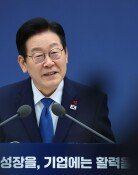Miners headed for Germany 50 years ago to bequeath strong Korea
Miners headed for Germany 50 years ago to bequeath strong Korea
Posted November. 16, 2013 04:31,
On December 21, 1963, 123 Koreans left Gimpo Airport. They were the first batch of miners who were heading to Germany, which was then called West Germany. Accompanying the people in the flight were Lee Chang-je, deputy director from the Economic Planning Board who was guiding the them, and Roh Sang-woo, reporter with The Dong-A Ilbo. A mining worker is a term that was more commonly used these days, but a mining laborer better reflects the mood of the time.
From the first batch in 1963 through 1977, more than 7,900 Korean miners and 11,100 nurses headed to Germany, a foreign land that they had hardly heard of. People who applied for the chance to earn money included a number of graduates and dropouts of prestigious universities. Anecdotal records say that some intentionally applied coal powder onto their faces to look like a miner with dark and rough face, a job that they had never experienced, which still sounds heartbreaking to hear.
Back then, Korea was one of the poorest countries in per-capita national income among some 120 U.N. member states and there were few companies who could hire them even after their graduation from college. Those people who finished higher education thus raced to go to Germany to collect coal in the underground mine 1,000 meters deep, and to clean corpses at hospitals just for a simple reason that they were born in an impoverished country. As was the case in the past, it is still the reality today that no matter how competent an individual is, he or she will not receive proper treatment if the county is weak and pitiable.
The dispatch of miners and nurses to Germany was the first case in which Koreans moved to a foreign country en masse since Koreas liberation from Japans colonial rule in 1945. The money they transferred to Korea was invaluable resource to the Korean economy, wherein every single dollar counted. The White Papers on Korean Miners Dispatched to Germany, which was published in 2009 by the Council of Korean Miners Dispatched to Germany, described their activities as the first shovel to earn foreign currency. Afterwards, money transfers by Korean soldiers who were deployed to Vietnam and workers who were seconded to the Middle East made major contributions to the nations economic development.
Koreas per-capita income of around 80 dollars in the early 1960s, exceeded 1,000 dollars in 1978. The nations export, which was hovering below 100 million dollars per year, topped 10 billion dollars in 1977. Based on the economic leap it achieved in the 1960s and 1970s, Korea has become virtually the only country that is on the verge of joining the ranks of advanced countries among the countries that became independent after World War II, when excluding small states such as Singapore. There have been political fluctuations, but when viewed from grandiose historical perspective, the path the Republic of Korea has taken is a truly proud achievement, which is historically unprecedented.
The young Koreans, who went to Germany, Vietnam and the Middle East during Koreas industrialization era, are now in their 50s, 60s and 70s. Because they are the generations who know through their own memories and physical experiences about the path of the nations modern history from a least developed country, to advanced developing country, and to one that has reached the threshold to the advanced country stature, they have mindset to prioritize the state as much as their personal interests. They are also the main forces who have been blocking the regressive embracement of left-leaning ideology, which has emerged in some segments of our society after achieving economic industrialization and political democratization. Even people who despise the Republic of Koreas achievements due to their ill-advised passion could not afford to deny the important contributions made by those generations. I would like to name Koreans in their 50s and older a Great generation.
In one month from now, Korea will mark the 50th anniversary of the day when the first batch of Korean miners departed for Germany. It is hoped that this will become an occasion when younger Koreans reflect upon sweat, tears and blood that their predecessors shed over the past half a century not to bequeath their pain of poverty to their descendants. It would be meaningful for President Park Geun-hye or Prime Minister Jung Hong-won to assess the historical meaning of the 50th anniversary and express gratitude for their sacrifice around December 21. We live in a different era. But I believe that the spirit of endeavors, through which the people, government and companies agonized and strove to overcome poverty at that time, remains valid and useful today in Koreas bid to overcome the regrettable situation where the country is feared to fall into a low growth trap, just short of joining the league of advanced countries.



![‘치매머니 사냥’ 요양원의 비극…701호 동생, 702호 아들에 뜯겨[히어로콘텐츠/헌트③-上]](https://dimg.donga.com/c/138/175/90/1/wps/NEWS/IMAGE/2025/12/16/132980393.1.jpg)



